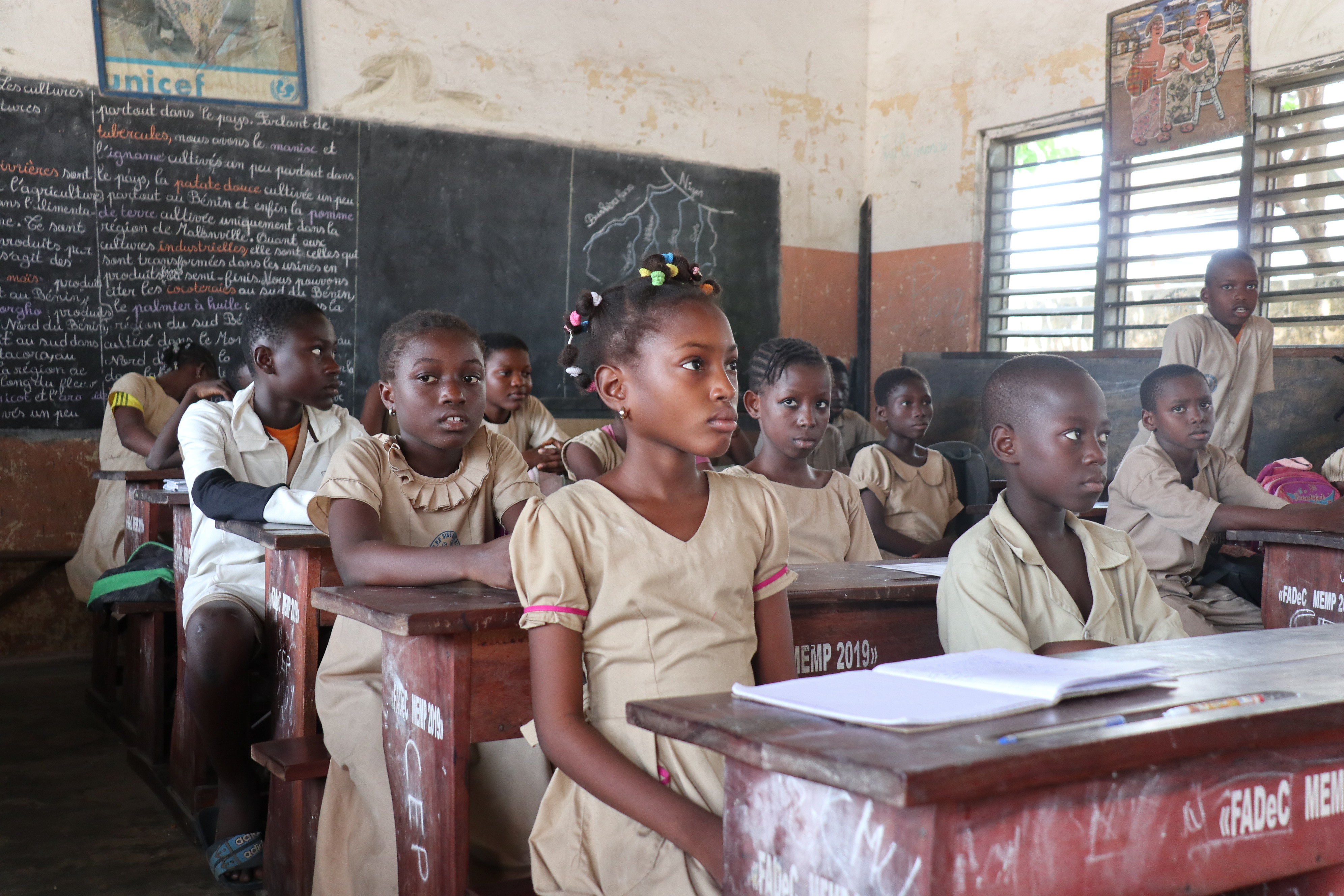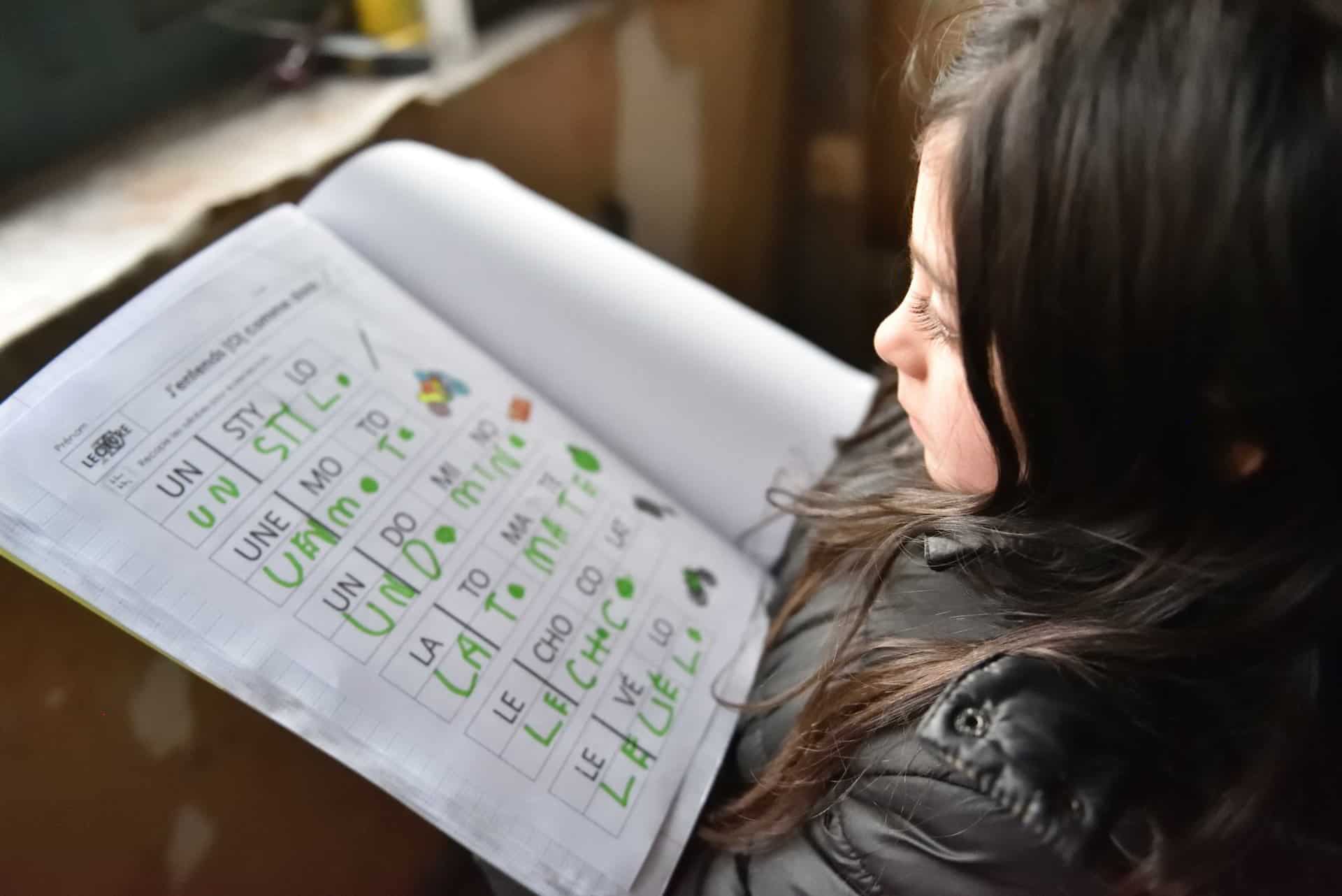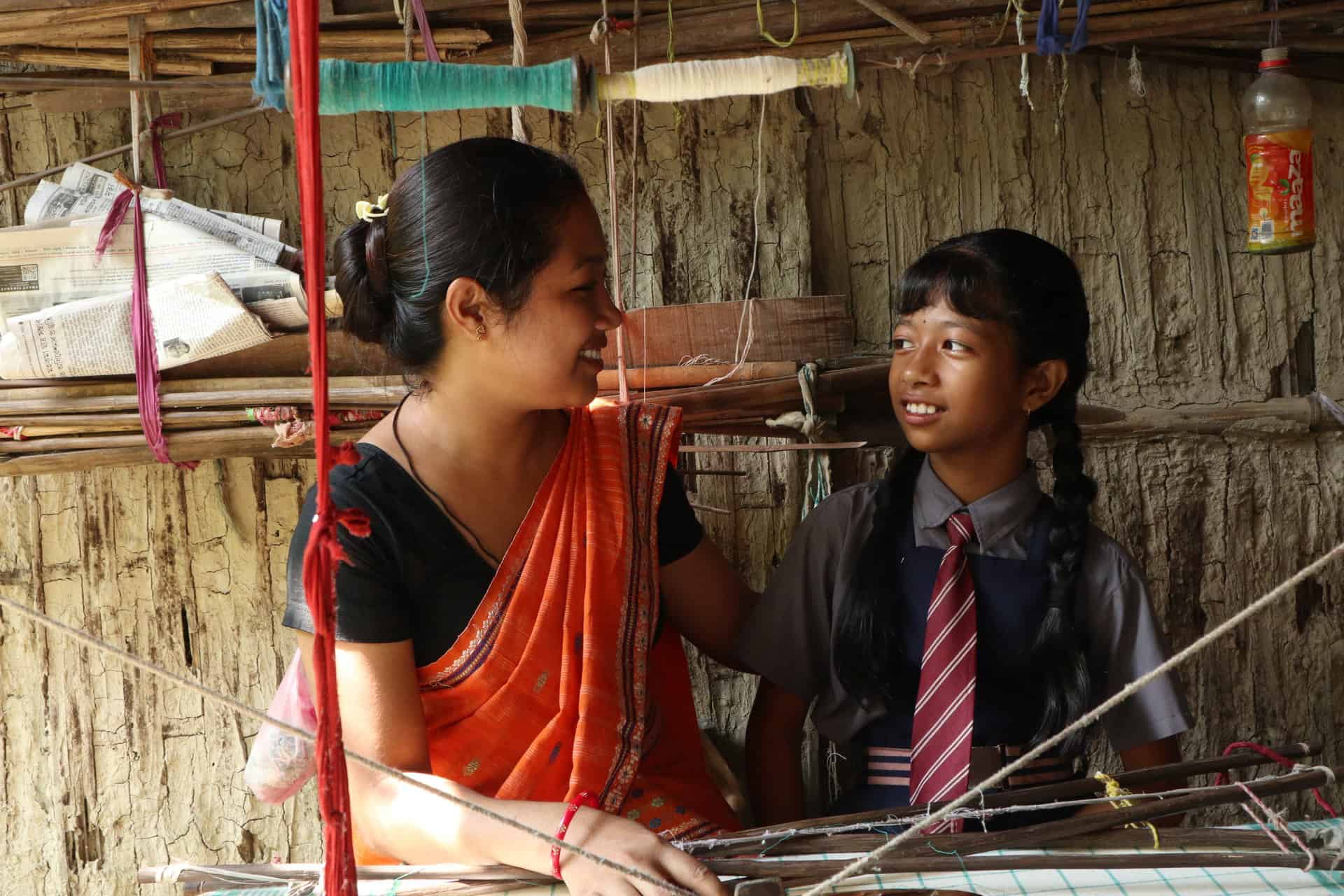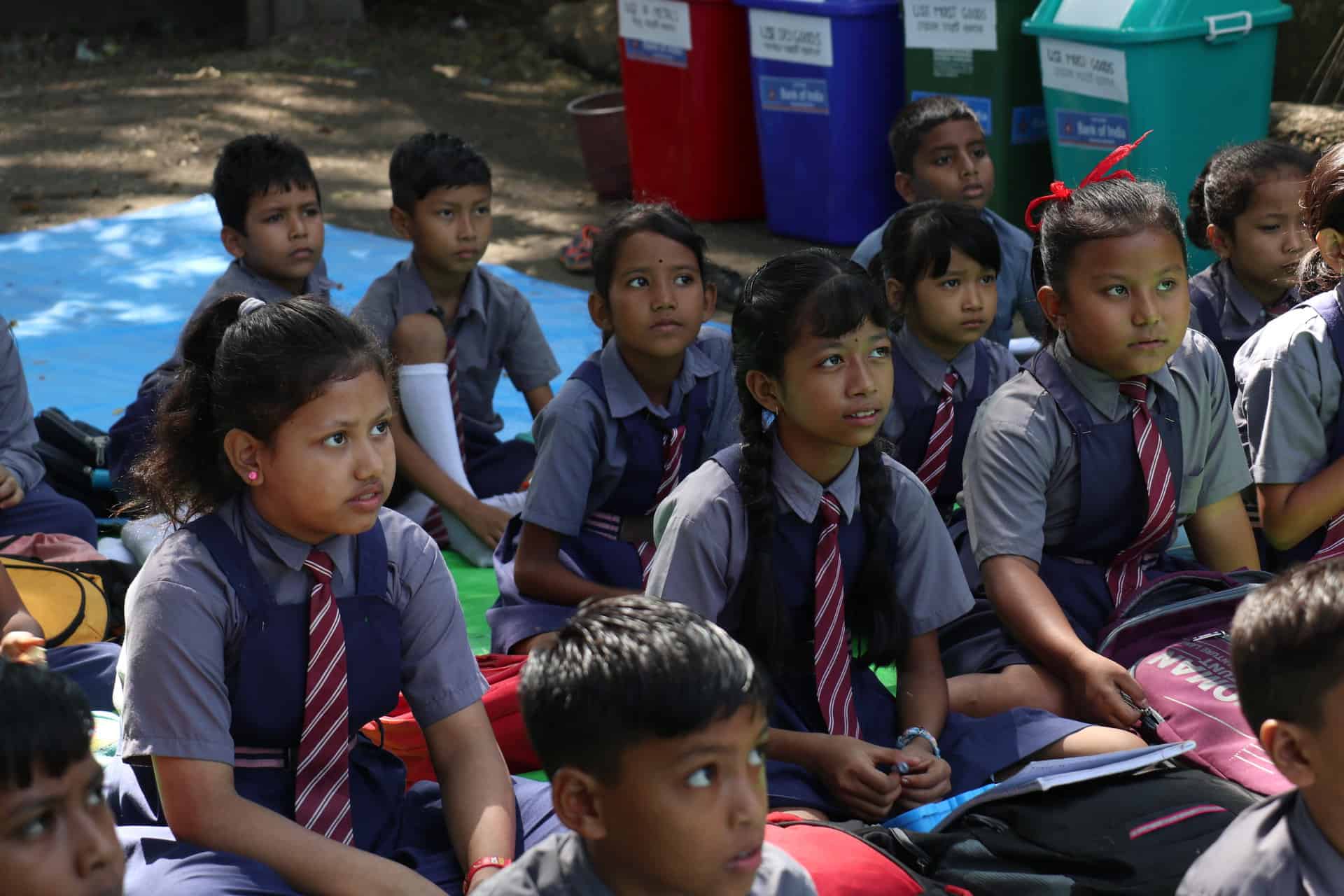Photo credit: Aide et Action
The partial or total suspension of activity due to the COVID-19 crisis is depriving millions of people of their source of income. This is the case of Reena Paniwal and her husband Sunil, in India. To support them, Aide et Action is encouraging them and other villagers to follow a development and empowerment initiative.
In 2019, Aide et Action in partnership with the Eicher Group Foundation launched the "Sashakt Gram" project, a development and empowerment initiative with 14 communities in Madhya Pradesh, India. The project promotes self-help and encourages villagers to take ownership of their community's development.
Becoming a seamstress to be autonomous
Reena Paniwal, a member of one of the groups supported by Aide et Action within the framework of the project, contacted the "Sashakt Gram" team and expressed her willingness to contribute to one of the activities set up: the making of reusable cloth masks. As the demand for masks has increased considerably in recent months, it has become difficult to meet the ever-growing needs of the population. As a result, more such efforts are underway in different states of the country. Since then, Reena has produced 8,000 masks and has been supported by a garment company to continue her work as a seamstress.
Impressed by her work and commitment, Aide et Action has given her a grant to help her start her sewing workshop. In addition, Reena can count on the help of Sunil, her husband, who collects the fabrics needed to make the masks and travels to the neighbouring villages to sell them.
Growing a vegetable garden to raise awareness of the importance of nutrition
In September, within the framework of the national nutrition month, the 14 member communities of the "Sashakt Gram" initiative, with the support of Aide et Action, started to cultivate and develop vegetable gardens. The "vegetable garden" project aims first and foremost at raising awareness on the importance of a varied, balanced and locally produced food and nutrition. It encourages the autonomy of families and communities, especially in these times of health and economic crisis.
So far, 150 families have benefited from the project and have their own vegetable garden, growing tomatoes, pumpkins, beans, okra and chilli. Inspired by the project, almost 1,500 other families have already expressed interest in developing their own gardens.







